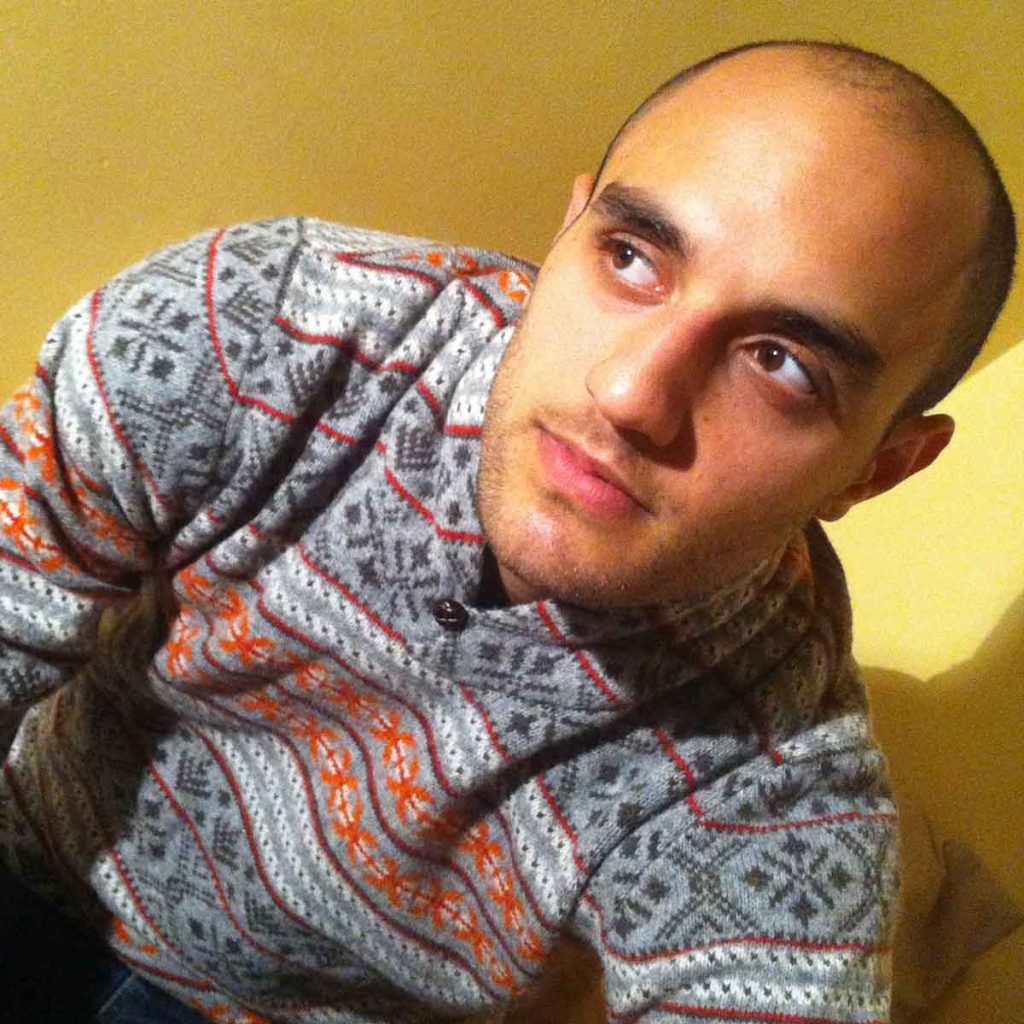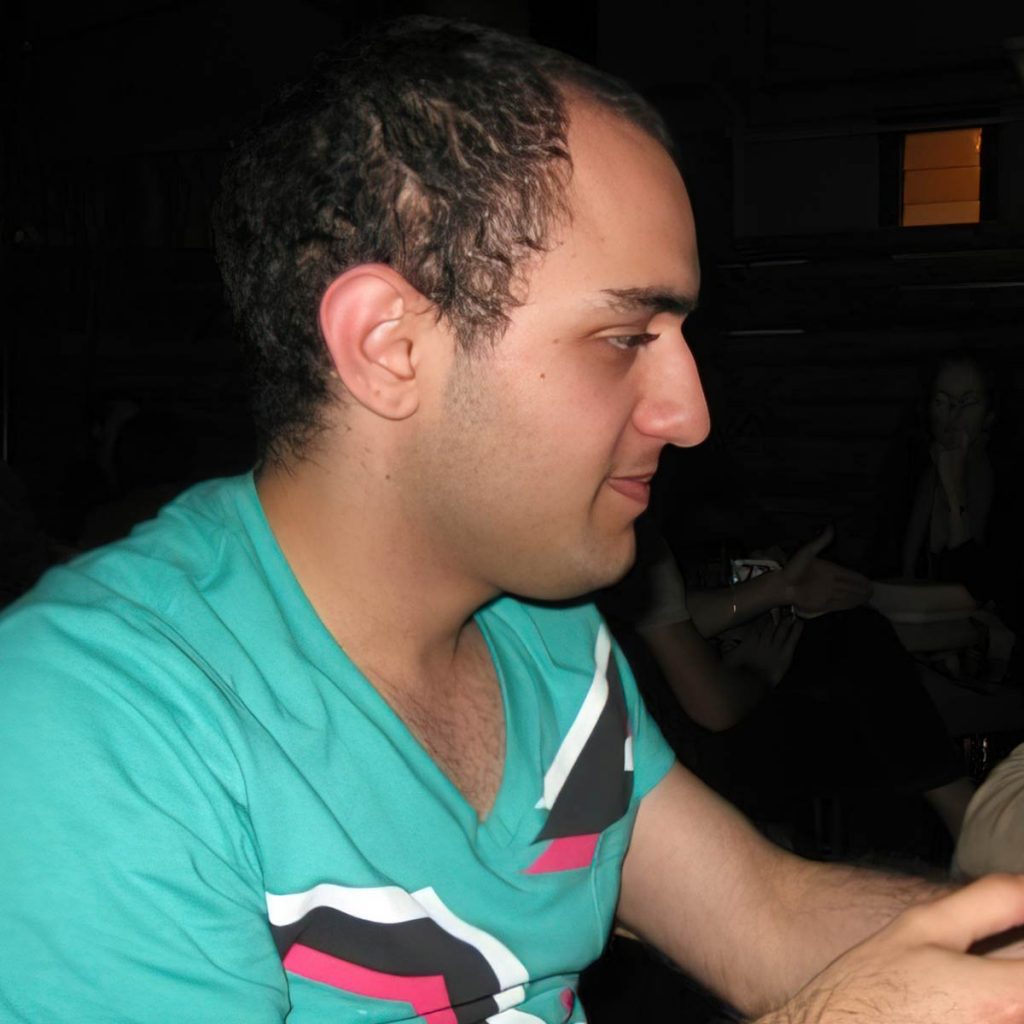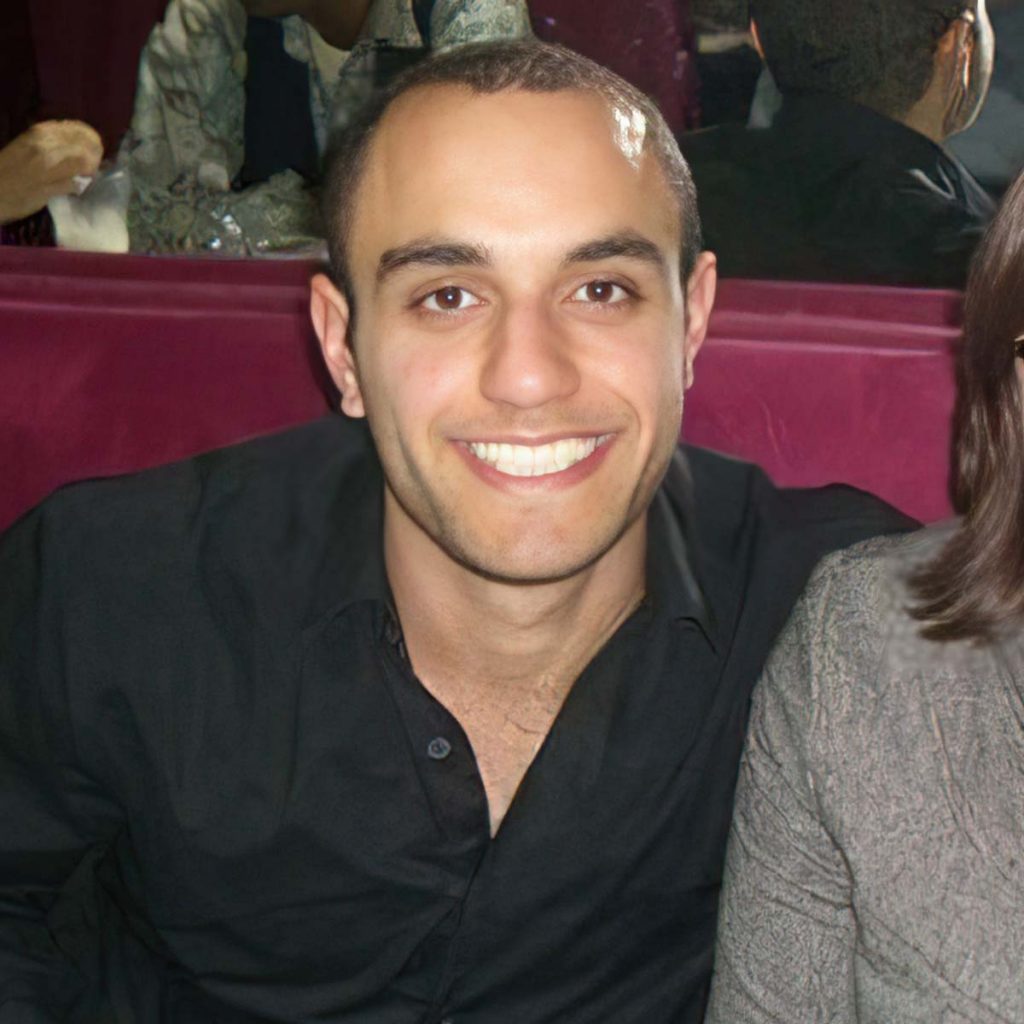Confessions of a Control Freak – Part 7: A Broken Hand-Me-Down
Confessions of a Control Freak is a memoir blog series exploring the impact of Obsessive Compulsive Personality Disorder, its origins, and the rocky path to recovery. Names and identifying details have been changed to protect the privacy of all featured individuals. Subscribe to receive all future posts. More about OCPD here.
I
“Drink it,” my mother growled.
I peered down at the dirty contents of her mop bucket. It was filled with water the color of ash, the surface broken by dust bunnies, tangles of hair, and dead flies.
“No,” I said, fighting the urge to gag. “No way.”
“Drink it,” my mom hissed, teeth bared.
After refusing to perform my Sunday chores by the appointed hour, mom had decided—independent of any discussion with me—to do the task herself.
Knowing her, this should have been expected. Mom forever seemed to run on some uncommunicated, extremely rigorous, and often internal schedule.
When I’d found her swabbing the floor, pushing the mop with the kind of force one might use to push an enemy over a cliff, I’d pleaded with her to stop.
For a while, mom had ignored me, glaring into a middle distance. Only when she’d completed a full circuit of the house did she call me back, to deliver her sadistic “drink it” command.
This memory was fiercely disputed by my mother years later.
“No, Essy,” she said, shaking her head. “I would never have done that. You must have imagined it.”
Yet how was it that I could recall so sharply the little details, such as the baring of her teeth and the dead flies?
Upon reflection, what resonated with me most about this memory was not so much the details, as the emotional truth that it spoke to: that my mom was, in some fundamental way, hostile.
As for denial—well, that was only just proof of her tendency to dismiss unflattering facts out of hand.
For my sister and I, “drink it” became a phrase we regularly bandied about, as much out of defiance as for the sheer hilarity of it.
It was our way of gently parodying the authoritarian mold our mother had often confined herself to.

II
Eventually, however, I too began to question the veracity of this incident.
This led to a grudging admission that perhaps what I recalled had in fact been a dream.
“You bastard,” my mom murmured. “All this time you had me questioning, ‘Did I really do that?’”
“I tortured myself over it,” she groused, “making me think what a terrible parent I had been.”
My own mother calling my heredity into doubt aside, it was clear that the “drink it” affair had caused her no small measure of self-doubt.
“Look,” I began, “if it’s any consolation, I didn’t go out of my way to make the story up. I genuinely believed it happened.”
As to whether my mother ever accepted my apology, I was never certain.
But if the matter taught me anything, it was that memory was malleable…and therefore dangerous.
While the “drink it” incident may never have actually occurred, the emotional narrative underlying this memory struck me as fundamentally true. My mind had thus been all too willing to re-categorize dream memory as lived memory.
“Drink it” had not been an outright invention, but rather a psychic extrapolation upon a recurring dynamic; a dynamic that had once pushed my relationship with my mother to the brink.
Suspicious as I had grown of my powers of recall, I continued over the coming years to drag more memories from the abandoned rubble of my past.
Throughout the process, I recruited my mother as a kind of touchstone who at various times challenged, corrected, supplemented, and reinforced.
While I questioned her own reliability as a narrator, I continued to actively solicit her feedback. The result, more often than not, was two very different accounts of the same event.
My conclusion was that no one—not even infallible old me—was invulnerable to the phenomenon known as memory bias.
All minds were capable of coloring, distorting, and even altering our recollection entirely.

III
Nowhere was this more evident than in my perceptions of my childhood, which often skewed negative.
To some, it might have been described as idyllic, unfolding amidst the pristine beaches, sugar cane fields, fruit tree plantations, rainforests, and coral reefs of tropical Far North Queensland.
To me, it suffered the follies of many small Australian towns: xenophobia, homophobia, ableism, and the like.
As a biracial gay kid with undiagnosed autism, growing up wasn’t exactly easy, especially given my parents were migrants without the support network of an extended family or financial means.
One of my earliest memories involved a visit to my parent’s failing business: a sandwich bar in the neglected corner of a plaza.
In this memory, my four-year-old self, my brother, and my father arrived to find our mother standing at the counter, a tense expression on her face, with no customers in sight.
My father asked how business had been that day, and my mother responded that she hadn’t seen a single customer the entire day.
When my brother and I asked to take a soft drink from the fridge, my father’s standard response was: “We can’t afford it.”
Still, my mom—ever the more indulgent of the two—would only wave his opposition away.
What I had known even then, to allusions often made in low voices, was that my parents were in a financial hole.
Not long later, they sold the sandwich bar at a significant loss. Yet long after it was gone, a splinter of what it had come to represent remained lodged in my mind.
To my child self, the business had come to represent a pervasive fear: that my family stood upon a precipice from which we might, at any time, be swept.
This fear I was certain wasn’t exclusive to me. I saw it now and then, in my parent’s furrowed brows, and their mutterings about bankruptcy.
I saw it also in the absence of smiles, their disinterest in playtime, and the gradual retreat into a hardened carapace.

IV
The selectivity of memory is such that one often settles for a tidy version of events; one that often occludes exceptions.
When I reflected on the past, for a while I only seemed to recall the most poignant of times. For me, these were when I wept and was not acknowledged.
Notes, with which one could weave a theme, and the theme I eventually settled upon for my childhood was a confusing mix of absenteeism and disciplinarianism.
In our home, disagreeing with one parent’s account of something, or committing a body function as harmless as a burp, could earn you a slap to the face.
My parents’ aversion to the latter became a source of great amusement to me and my brother.
Every so often, we would utter the forbidden words: “pee”, “poo”, “bum”, “fart”, and “wee-wee” and await our parent’s predictably angry reactions.
Loathe as we were to the paddling and spoonfuls of Tabasco sauce, uttering these so-called swear words aloud was sure to trigger laughter.
Though their punishments would leave us in tears, these tears would always be followed by uncontrollable giggles.
Suffice to say, my parents’ strictness struck me as not only unfathomable but unjust. We were children. It was in our nature to make mischief and to test boundaries.
With every blow, I felt a breaking of a sacrosanct contract to cherish and protect.
“We’re doing this for your own good,” our parents would tell us. To me, however, they seemed more interested in exacting their anger.
Mom and dad were evidently of the old school of parenting, in which complete obedience was expected and children were often treated as chattel.
Family discussions are never dialogues. Dialogues were the kind of thing best left for those “new age” parents; parents who were to be held in the utmost contempt.
Yet still, I wondered: how could my parents tell me that they loved me, even as they inflicted blinding pain? It seemed like a contradiction in terms.
It was only years later that I would recognize that this hardened carapace that had constricted my parents was not simply a product of circumstance.
Rather, it was a broken hand-me-down; evidence of a chain connecting my folks to their own, and to their folks before them.
It was one I, in time, would inherit…and make my own.

V
By my mom’s accounts, I was a fussy baby who refused to be suckled and hated to be touched.
It seemed that when she later recounted these facts, it was to apportion blame to my infant self. I saw in it guilt so heavy that the only way my mom knew to get out from under was to shift the focus.
What neither of us knew, not until much later, was that these behaviors were not the result of mere temperament, but the product of an oversensitized autistic mind.
Fear and overwhelm pervaded much of my daily life. When, for example, it came time for my vaccines, I screamed and struggled. When my mother strapped a ventilator mask to my face during asthma attacks, hysterics would inevitably ensue.
To hear my mother tell it, I was also a fussy eater. But in actual fact, I was physically revolted by the sight of even a single lamb bone or a kidney bean in a bowl of stew.
After my six-year-old self discovered the true source of meat, I embraced a highly selective form of vegetarianism, in which I might eat one vegetable but not another, on the grounds it looked “disgusting”.
When I suddenly decided at the supermarket deli counter that the chicken roll I had once avidly consumed I could eat no longer, my exasperated mother advised me that it was not actually processed meat after all.
Pressed a short while later, however, my mother revealed her deception in her refusal to meet my gaze.
This was, in part, understandable. Food to my mother was the primary means of communicating her love.
As such, she felt justified in removing a boundary that might otherwise hamper that communication.
A few months later, she insisted I try eating a piece of veal schnitzel. One glimpse at the brown meat however was enough to leave me nauseous.
Solemnly, I advised my mom that if she forced me to eat it, I would be ill. Sure enough, 10 minutes after taking my first few bites, I threw up.
At the time, I read these events as betrayals of trust. Even in the act of physical nourishment, I experienced the conviction that I was—and never would be—safe in the world.

VI
In my teenage years, our household collapsed. It wasn’t one thing that did it, but rather the cumulative burden of many hardships.
Key contributors were my brother’s spiral into theft, violence, and drug use, and my guitarist and composer father’s withdrawal into depression.
This withdrawal was as much from his family, as it was into the cocoon of his craft—and followed a devastating job loss.
When I tried to talk to my father during one of his extended music practice sessions, his response would be to act as if simply wasn’t there.
If I persisted with my efforts, I might receive an irritable shake of the head. The gesture could be interpreted as “no” to any question posed or request made. But in reality, it was a statement: “Go away. Don’t bother me.”
Other times, I might receive a direct verbal dismissal: “I don’t know”, “Figure it out”, or “You two can sort it out amongst yourselves”.
Your brother assaulted you? Serves you right. Your brother destroyed your CD player? Not my problem.
My mother suffered her own kind of withdrawal. When I ran to her, complaining about how my brother had disappeared my pet parrot, she only turned away.
Forced to shoulder both full-time employment and various domestic duties, mom spent most of her days in a strange combination of a brood and ceaseless motion.
If there was anything she could be counted upon, it was that she would always be manning her post in the kitchen, preparing some meal or another, often for hours at a time.
Mom’s bustling could have been explained as a matter of necessity; there were always clothes to wash, a dishwasher to unpack, or a dog to feed.
Upon later reflection, I understood that it had in actual fact been her way of managing anxiety.
This bustling had a quality of compulsion to it, as did the expectations that one must follow her rules and meet all expectations to a tee.
Fail to toe one of my mom’s many invisible lines and you could find yourself in her bad books for weeks at a time. This was the rigid code by which she lived, and in turn, expected others to live.
As it turned out, the “drink it” incident—or rather, some less extreme variation of it—had actually occurred.
On several occasions, I had accidentally failed to meet a deadline for the completion of a household chore.
Usually, I’d argue with my mother to stand down, but no amount of words could convince her to surrender the vacuum or mom.
Ever the proud martyr, she would refuse to abandon the scaffold long after a pardon.
She was in many ways incapable of slipping her head out of the hangman’s noose. For this was a position for which she wholeheartedly believed herself destined.
Which was exactly the same belief I would find myself harboring, decades later.
Confessions of a Control Freak continues with Part 8: “A cycle of workaholism”.

Essy Knopf is a therapist who likes to explore what it means to be neurodivergent and queer. Subscribe to get all new posts sent directly to your inbox.
© 2025 Ehsan "Essy" Knopf. Any views or opinions represented in this blog are personal and belong solely to the blog owner and do not represent those of people, institutions or organizations that the owner may or may not be associated with in professional or personal capacity, unless explicitly stated. All content found on the EssyKnopf.com website and affiliated social media accounts were created for informational purposes only and should not be treated as a substitute for the advice of qualified medical or mental health professionals. Always follow the advice of your designated provider.


